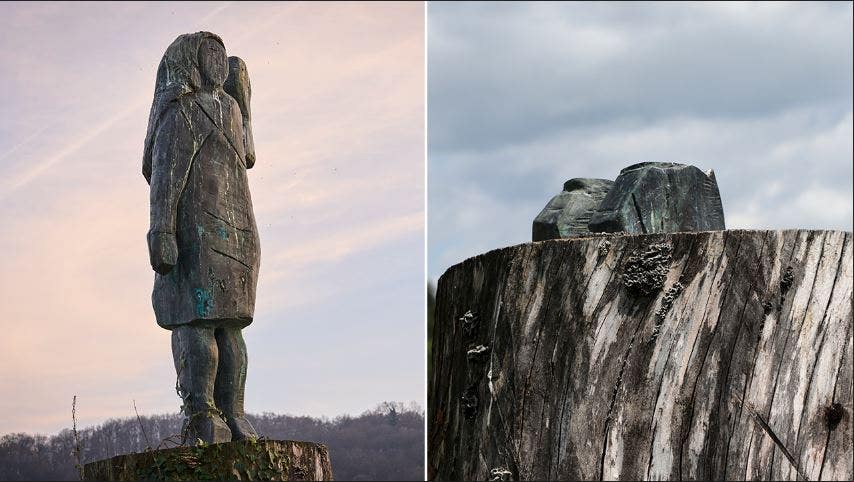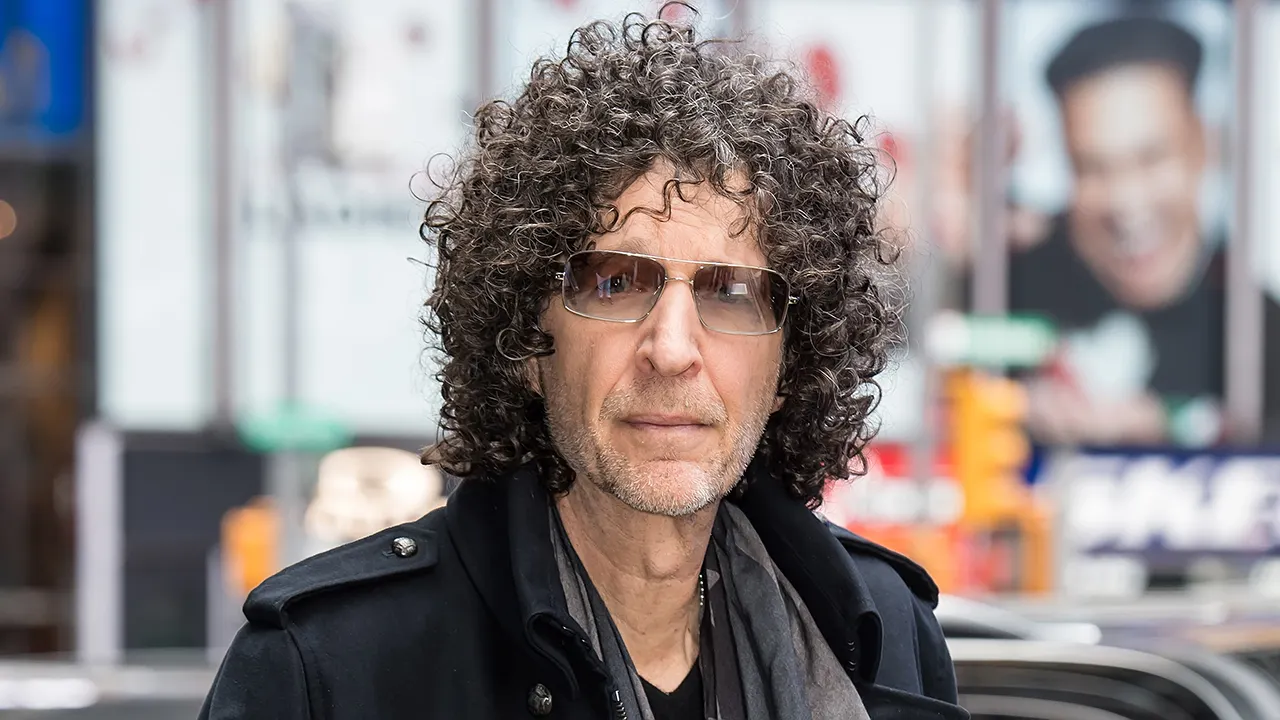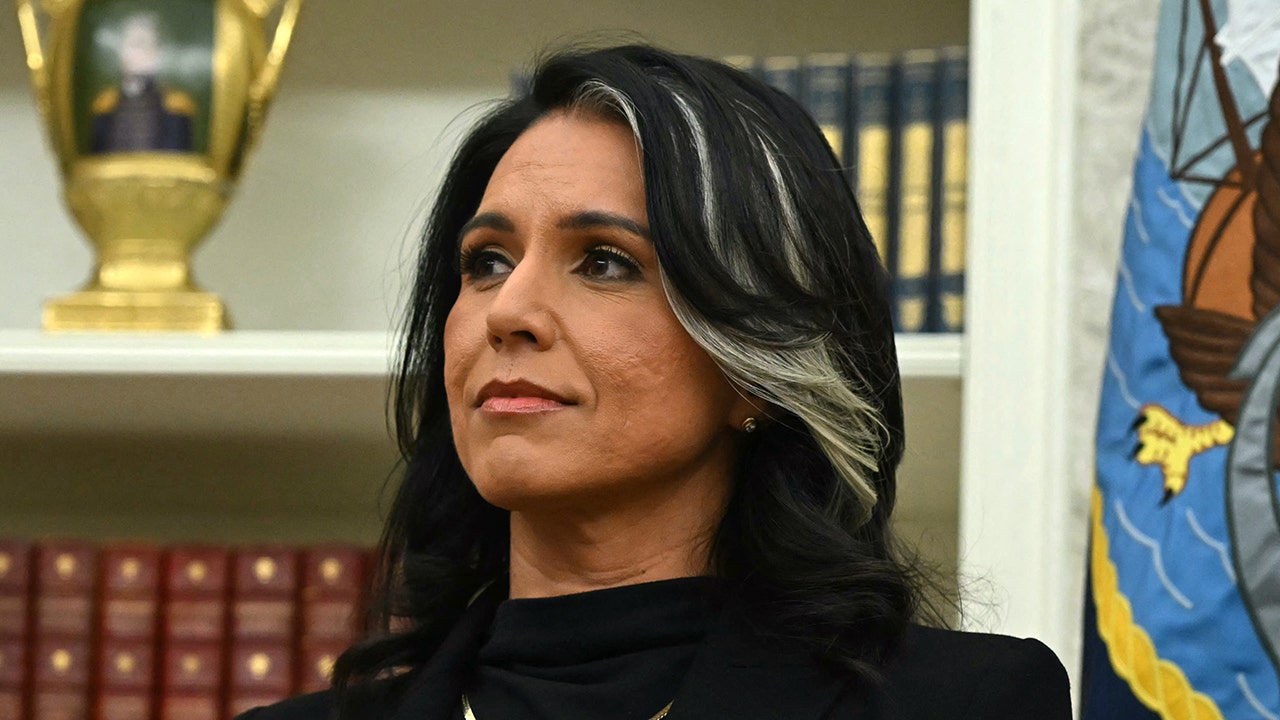Business
Clarence Avant, Mighty Engine Behind Black Superstars, Dies at 92

Clarence Avant, a record executive who shaped the careers not only of Bill Withers, Whitney Houston, Janet Jackson and other Black singers, but also of politicians, actors and sports figures — exerting so much influence that a 2019 documentary about him was called simply “The Black Godfather” — died on Sunday at his home in Los Angeles. He was 92.
His family announced his death in a statement.
Mr. Avant (pronounced AY-vant), born in a segregated hospital in North Carolina and educated only through the ninth grade, moved easily in the high-powered world of entertainment, helping to establish the idea that Black culture and consumers were forces to be reckoned with.
He started out managing a nightclub in Newark in the late 1950s and moved on to representing some of the artists he met there. Joe Glaser, a high-powered agent who handled Louis Armstrong, Duke Ellington and many other top acts, took Mr. Avant under his wing; perhaps, the documentary suggested, Mr. Glaser, who was white, thought it would be advantageous to have a Black man representing some of his Black clients.
In any case, Mr. Avant was soon handling artists including the jazz organist Jimmy Smith and traveling in rarefied circles. Not all his clients were Black; he said Mr. Glaser sent him to Los Angeles in 1964 with the Argentine pianist Lalo Schifrin, who was then working with Dizzy Gillespie, to try to get Mr. Schifrin started on a career composing for film and television. Though he knew nothing about the movie business, Mr. Avant worked his brand of magic on the West Coast: Mr. Schifrin has to date been nominated for six Oscars.
In 1960 Mr. Avant formed Sussex Records — he said the name was his combination of the two things people want more than anything else, success and sex — which lasted only about half a decade but released, among other records, Mr. Withers’s early albums.
“Clarence made some great choices musically,” Mr. Withers, who died in 2020, said in the documentary. “‘Lean on Me’” — Mr. Withers’s only Billboard No. 1 hit — “was not my choice for a single.”
Later in the 1970s Mr. Avant founded Tabu Records, and for a time in the 1990s he was chairman of Motown. He also helped Jim Brown, the football player, build an acting career and negotiated an endorsement deal for Hank Aaron, the Hall of Fame baseball player, as well as supporting the political careers of Jimmy Carter, Bill Clinton and Barack Obama.
“One of the things he understands is, there are different kinds of power,” Mr. Obama said in the documentary. “There’s the power that needs the spotlight, but there’s also the power that comes from being behind the scenes.”
In 2013, accepting the entrepreneur award at the BET Honors, one of many he received in his career, Mr. Avant summed himself up.
“I can’t make speeches,” he told the crowd while clutching his trophy. “That’s not my life. I make deals.”
Clarence Alexander Avant was born on Feb. 25, 1931, in Greensboro, N.C., to Gertrude Avant Woods, a domestic worker. In the documentary, he said his mother was not married to his father, Phoenix Jarrell, whom he barely knew.
He grew up in Climax, N.C., in difficult circumstances and stayed in school only through ninth grade.
“We were poor,” he said in the film. “I’m talking about poor, poor, poor. We had chicken-feet soup.”
Racism was omnipresent, and the Ku Klux Klan loomed large.
“My mother would just tell us, if you hear a car coming, run and hide; lay down flat,” he said.
He grew up with a stepfather, Eddie Woods, who was abusive, and he said he left home when he was a teenager after his attempt to kill the man by putting rat poison in his food failed. He went to live with an aunt in Summit, N.J.
For a time he held a low-level job at Martindale-Hubbell, publisher of a law directory. In his 20s he started working at a Newark nightclub that featured Black musicians. That was his introduction to the entertainment business, and he proved a natural.
“I think Clarence exemplifies a certain cool,” Mr. Obama said in the documentary, “a certain level of street smarts and savvy that allowed him to move into worlds that nobody had prepared him for and say, ‘I can figure this out.’”
As his career representing entertainers began to flourish, Mr. Avant met Jacqueline Gray, a model. They married in 1967, and as the couple prospered Ms. Avant became noted for her philanthropic work.
In December 2021 a man burglarizing the Avants’ home, Aariel Maynor, shot and killed her. He pleaded guilty to multiple charges the next year and was sentenced to life in prison.
In the documentary, friends remarked on their long marriage, somewhat unusual in the entertainment world.
“They still look like they’ve got wedding cake on their feet,” the actor Jamie Foxx said, “like they just walked off a soul wedding cake.”
Mr. Avant’s daughter, Nicole Avant, said in a phone interview that after the tragedy, her father made a conscious effort to press on.
“Music was, I think, the lifesaving force for him,” she said, especially that of Ellington, Frank Sinatra and other artists from his youth. “His mood changed when the music came on.”
At about the time he was getting ready to marry Jacqueline, Mr. Avant was growing more vocal about racial matters. A 1967 article in The Pittsburgh Courier quoted a strongly worded letter he had written to the management of WLIB, a radio station in New York that was aimed at a Black audience but at the time was white-owned.
“Is your station managed by Negroes,” he wrote, “and I am not referring to Negro disc jockeys?”
“I think radio stations whose programs are supposed to appeal to the so-called Negro market,” he added, “should at least be staffed by Negro personnel.”
He was also becoming active politically. He supported the early campaigns of Andrew Young, who made an unsuccessful run for a Georgia congressional seat in 1970 and a successful one two years later. It was Mr. Young who connected Mr. Avant to Hank Aaron when he was about to break Babe Ruth’s career home run record in 1974.
“Clarence called me up and said, ‘Andy, do you know Hank Aaron?’” Mr. Young recalled in the documentary, which was directed by Reginald Hudlin. “I said, ‘Yeah, he lives around the corner.’ He said, ‘If he’s about to break Babe Ruth’s record, he’s supposed to make some money.’”
Mr. Avant wanted to help Mr. Aaron secure some endorsement deals.
“Will you tell him that I’m not crazy and I’m going to call him?” Mr. Avant asked Mr. Young.
“I said, ‘Well, I can’t vouch for you not being crazy,’” Mr. Young said, “‘but I’ll tell him that you’ve been very helpful to me.’”
It was fraught territory — Mr. Aaron was receiving death threats over the prospect that he would break a hallowed record set by a white player. Mr. Avant, though, according to the documentary, marched into the office of the president of Coca-Cola and told him, in unprintably blunt language, that Black people drink Coke.
Mr. Avant’s guidance helped Mr. Aaron secure a substantial deal from Coke and otherwise market himself, which fueled his later charitable endeavors.
“Henry Aaron would not be Henry Aaron if it were not for Clarence Avant,” Mr. Aaron, who died in 2021, said in the film.
Mr. Avant also helped other athletes, including Jim Brown as he transitioned from football into acting in the 1960s. Interviewed for the documentary, Mr. Brown, one of the biggest Black stars of the 1960s and ’70s, had a hard time pinning down what Mr. Avant did — not an uncommon thing among those who knew and worked with Mr. Avant.
“You have this guy called Clarence Avant that everybody’s talking about, but nobody seems to understand just what his official title was,” Mr. Brown, who died in May, said, recalling their early meetings. “I couldn’t tell you now exactly what he — was he an agent, a manager, a lawyer? — what he was.”
Mr. Avant had rocky times in the mid-1970s, when the Sussex label went bankrupt and KAGB-FM, a radio station he had bought (making it one of the first Black-owned stations in the Los Angeles area), floundered. But, he said, friends were always his most important asset, and some of them helped him get back on his feet.
Tabu Records, which Mr. Avant founded in 1975, released records by the S.O.S. Band, Cherrelle and others.
In addition to his daughter, who was a producer of “The Black Godfather,” Mr. Avant is survived by a son, Alexander, and a sister, Anne Woods.
The Avant home was always abuzz with A-list visitors. Nicole Avant recalled a day, when she was 12, that she and a friend got into trouble at school. The friend’s mother, driving Nicole home, was fuming — until she saw Harry Belafonte walking out of the Avants’ house.
“Is that Harry Belafonte?” the woman asked her.
”I said, ‘Yeah, how do you know Harry Belafonte?” — not realizing he was anyone other than a friend who would come around to visit her parents from time to time.
Ms. Avant, who served as ambassador to the Bahamas during the Obama administration, said that Mr. Belafonte and others who would gather at the Avant home were serious about breaking down racial barriers, in the entertainment world and in society in general.
“They knew that they were on a mission,” she said.
The flood of tributes offered to Mr. Avant on Monday included many from younger performers who appreciated his legacy.
“He is the ultimate example of what change looks like, what architecting change looks like, and what the success of change looks like,” the rapper and producer Pharrell said in a statement. “He stared adversity in the face in climates and conditions that weren’t welcoming to people that looked like him. But through his talent and relentless spirit in the pursuit to be the best of the best, he garnered the support and friendship of people who otherwise wouldn’t look in our direction.”

Business
Epic Games says Apple blocked 'Fortnite' in U.S. app store

Epic Games on Friday said that its popular game “Fortnite” will be offline on Apple devices because the iPhone maker blocked its recent app update.
The dispute comes just weeks after Epic Games and other app developers cheered a judge’s ruling that limited the commissions that Apple makes through third party apps distributed through its app store.
Apple received a scathing rebuke from U.S. District Judge Yvonne Gonzalez Rogers, who sided with Epic Games, which alleged that the Cupertino, Calif., tech giant ran afoul of an order she issued in 2021 after finding the company engaged in anticompetitive behavior.
Under the ruling, Apple can’t collect commissions on purchases U.S. customers make through links inside iPhone apps that direct them to outside websites. Developers, which make money by selling digital goods and services via their apps and games, want to avoid giving Apple a cut of their revenue by sending customers to other websites.
“That [Apple] thought this court would tolerate such insubordination was a gross miscalculation,” the judge wrote in her ruling.
Many developers applauded the court’s ruling, which limits what they call the Apple tax, and said they would pass on the savings to customers.
Epic Games’ Chief Executive Tim Sweeney earlier this month said “Fornite” would return to the App Store in the U.S. and possibly worldwide if Apple extends “the court’s friction free, Apple tax-free framework” globally. But on Friday, the “Fortnite” X account said that Apple blocked its submission.
“Now, sadly, Fortnite on iOS will be offline worldwide until Apple unblocks it,” the account posted. Epic Games did not return requests for further comment.
Apple said on Friday that it asked that “Epic Sweden resubmit the app update without including the U.S. storefront of the App Store so as not to impact Fortnite in other geographies.”
“We did not take any action to remove the live version of Fortnite from alternative distribution marketplaces,” Apple said in a statement.
Rob Enderle, principal analyst with advisory services firm Enderle Group, said the recent ruling applies to the U.S. and Apple wants to retain the rest of its control worldwide. Apple makes significant money through apps.
“Apple is using their … strength to prevent ‘Fortnite’ from benefiting globally from their core win,” Enderle said.
Epic Games filed its lawsuit against Apple in 2020. “Fornite” generates revenue by letting people buy digital goods, such as “skins,” in the game, and Epic wanted to let users buy items outside the Apple system to avoid the company’s commission.
While the judge ruled that Apple did not have a monopoly in the mobile gaming market, the court ordered Apple to let app developers put links in its apps so customers could make outside purchases and bypass the company’s commission fee. Apple, however, defied the order, the court said.
Apple limited the ways that developers could communicate with its customers about out-of-app purchases and used wording that discouraged users from clicking on those links, the judge wrote. Apple would charge a commission fee for any goods or services purchased within seven days of a consumer clicking on a link that took them out of the app, the ruling said.
Apple is appealing the ruling and has said it strongly disagreed with the judge’s decision.
Business
Consumers Show Signs of Strain Amid Trump's Tariff Rollout

The U.S. consumer has seemed unstoppable in recent years, spending throughout soaring inflation and the highest borrowing costs in decades. That resilience helped to keep at bay a recession that many thought inevitable after the pandemic.
Consumer spending has fueled the economy
Year-over-year percentage change in retail and food service sales
President Trump’s tariffs and their scattershot rollout have once again raised concerns that the United States may soon face an economic downturn. While the odds of an outright recession have fallen as the highest levies have been paused, there are reasons to be worried about the ability of consumers to continue to prop up growth.
Consumer spending accounts for more than two-thirds of U.S. economic activity, meaning a sharp enough pullback could cause significant damage.
For now, consumers are still spending, although more slowly than in the past. Their attitudes about the economic outlook have soured in recent months in anticipation of elevated prices, slower growth and higher unemployment. Americans have also become choosier about how they spend their money. Leisure and business travel has declined. People are buying fewer snacks and eating out less as they look to cut costs. They are even doing fewer loads of laundry to save money.
“The economy is really vulnerable to anything that could go wrong, and clearly there’s a lot that could go wrong,” said Mark Zandi, chief economist of Moody’s Analytics.
It is not yet clear if the slowdown simply reflects distortions related to stockpiling before Mr. Trump’s trade war starts to really bite, or if it is an early sign of a full-blown retreat.
Part of what has enabled consumers to spend so freely up until this point is a stockpile of savings that they accrued as a result of government stimulus during the pandemic and a booming stock market. Those savings have now largely been tapped out.
“The cushion that was there during the pandemic to weather the storm of higher prices is not there now,” Diane Swonk, the chief economist at KPMG, said. The highest-earning 10 percent of Americans, who drive the bulk of consumer spending, are still in good shape, but it’s the bottom 90 percent that worry her most.
Those households are under increased financial stress.
The share of outstanding credit card debt that is 90 days or more past due started increasing in 2023 and has continued to rise across geographies and income levels, according to data through the first quarter of this year released Tuesday by the New York Fed and research by the St. Louis Fed. The trend has become particularly pronounced for poorer households.
Credit card delinquency is high
Percentage of credit card debt that is 90 days or more past due
And real-time credit reports from Experian, one of the three major U.S. credit rating firms, suggest the pace accelerated in April.
Americans are struggling with other kinds of payments, too. The overall delinquency rate, which includes all loan types, reached its highest level since 2020 in the first quarter of this year, according to the Fed data. This was driven by student loan delinquencies, as past-due student loans once again were included in credit reports after a pandemic-era pause on federal student loan repayments.
Because they now have to pay down those balances after a five-year reprieve, consumers may increasingly have trouble servicing other kinds of loans, another strain.
What matters most, however, is the labor market. “If American consumers have money, they’re going to spend it, and the primary place they get money is through their jobs,” said Eric Winograd, an economist at the investment firm AllianceBernstein.
Businesses are still hiring, layoffs are low and the unemployment rate has stabilized at a historically low level of around 4 percent. But the labor market is noticeably less robust than it was in the aftermath of the pandemic, a period that was marked by booming hiring, soaring wages and acute worker shortages.
“Nothing emboldens consumers quite like a strong labor market, and we don’t have that anymore,” said Tom Porcelli, chief U.S. economist at PGIM Fixed Income.
Companies are posting far fewer job openings and positions are no longer much more plentiful than the number of people looking for work as businesses reassess their staffing needs in an environment of slowing growth.
Jobs are no longer much more plentiful than available workers
Job openings vs. unemployment
Spending is now consistently increasing faster than income, once adjusted for inflation. This imbalance cannot last, said Neil Dutta, head of economic research at Renaissance Macro. Either incomes will need to accelerate or consumption must slow over time. “Given what we know about the job market and wage growth, it’s more likely that consumer spending slows than incomes rise,” he said.
Spending is growing faster than income
Year-over-year percentage change in real consumption vs. real income
Pay is no longer soaring for workers in the lowest-paid industries, such as leisure and hospitality, who saw their earnings increase the fastest in the initial recovery period when the job market was strong and demand for their services was high. Now, pay is rising faster in high-wage industries — as pay for lower- and mid-wage jobs stagnate.
Wage growth has slowed, particularly for workers in low-wage industries
Median year-over-year percentage change in industry-level earnings for nonmanagers
It is too early to say if the lessons of the post-pandemic period will prove applicable this time around. Consumers are clearly under heightened pressure, but it will take time to know whether they are buckling under that weight or once again muscling through.
So far, policymakers at the Federal Reserve do not appear too worried just yet and are taking their time to assess the economic impact of Mr. Trump’s policies before restarting interest rate cuts.
“The U.S. consumer never lets us down,” John Williams, president of the Federal Reserve Bank of New York, said in a recent interview.
Business
Retail theft surge in Inland Empire store prompts new policy: Leave shopping bags with the cashier

A locally owned grocery store fed up with a rise in theft in its Inland Empire community is trying to crack down on the problem by restricting the use of large personal shopping bags in the store.
On a Facebook post in April, Matthew and Allison Whitlow announced their ownership of the Grocery Outlet on East Florida Avenue in Hemet. Less than a month later, the owners noted on social media that a personal bag policy will be strictly enforced citing “an influx of theft.”
In the post, the Whitlows asked that customers leave their reusable shopping and personal bags — including anything larger than a small handbag — in the front of the grocery store with a cashier.
“While this has always been posted on our front door, we have had some take advantage and walk out of store without stopping by the register,” according to a Facebook post.
The Whitlows declined to speak with The Times about the incidents that led to their decision.
But asking customers to leave their reusable bags at the front of the store could create confusion for shoppers who are trying to follow state law and help the environment.
Since 2014, California has worked to eliminate single-use plastic bags from grocery stores and have recently taken a step further by passing legislation that would do away with the thicker plastic bags made of high-density polyethylene, or HDPE. Grocery stores have been offering the thicker HDPE bags to shoppers instead of the banned thin plastic bags.
In response, shoppers across the state have stocked up on reusuable grocery bags, made of canvas or cloth.
The new bag policy is in response to an uptick in retail theft across the state, an issue so problematic that state officials have dispatched California Highway Patrol officers to help local police get a handle on retail crime and car theft and help bolster traffic enforcement.
Gov. Gavin Newsom has sent officers to Oakland and Bakersfield, cities that have had immense issues with smash-and-grab retail crime.
Customers who leave their large bags at the front are allowed to take out and carry their smartphones and wallets while they shop.
The Whitlows are encouraging their customers to use store-provided hand baskets instead.
“With us being locally/independently owned, when theft occurs, it not only hurts us, but the community,” the post stated. “We know this is inconvenient for everyone, but we want to ensure that we have products for you all as well as not lose any so we can keep pricing affordable.”
Rather than resort to theft, the owners suggested in the post that shoppers who are struggling to make ends meet ask for help.
“Please ask for one of the owners, Matt or Allison, and we will see what we can do to help,” the post stated.
-

 Austin, TX6 days ago
Austin, TX6 days agoBest Austin Salads – 15 Food Places For Good Greens!
-

 Technology1 week ago
Technology1 week agoNetflix is removing Black Mirror: Bandersnatch
-

 World1 week ago
World1 week agoThe Take: Can India and Pakistan avoid a fourth war over Kashmir?
-

 News1 week ago
News1 week agoReincarnated by A.I., Arizona Man Forgives His Killer at Sentencing
-

 News1 week ago
News1 week agoJefferson Griffin Concedes Defeat in N.C. Supreme Court Race
-

 News1 week ago
News1 week agoWho is the new Pope Leo XIV and what are his views?
-

 Movie Reviews1 week ago
Movie Reviews1 week agoFight or Flight (2025) – Movie Review
-

 News1 week ago
News1 week agoEfforts Grow to Thwart mRNA Therapies as RFK Jr. Pushes Vaccine Wariness














